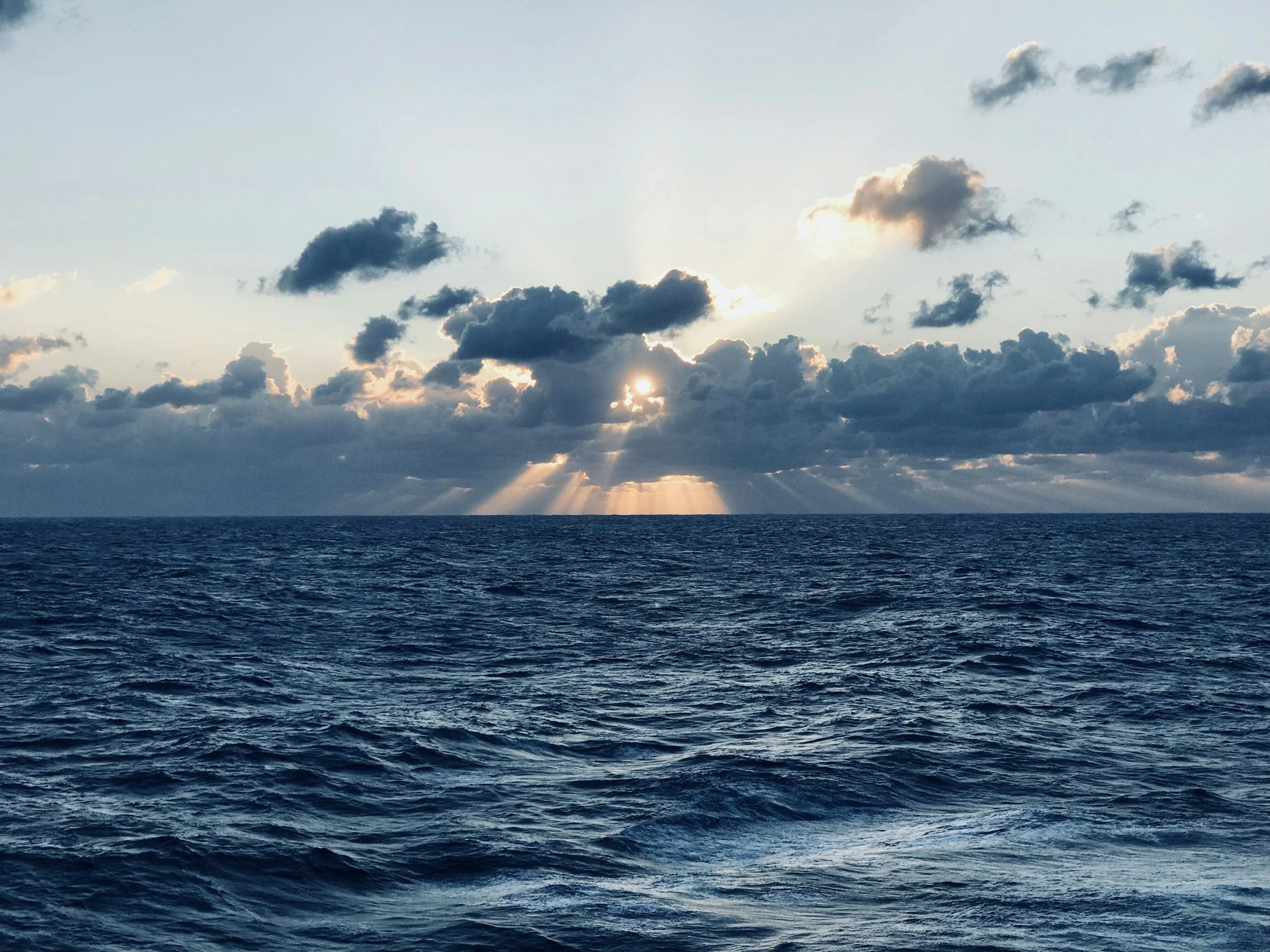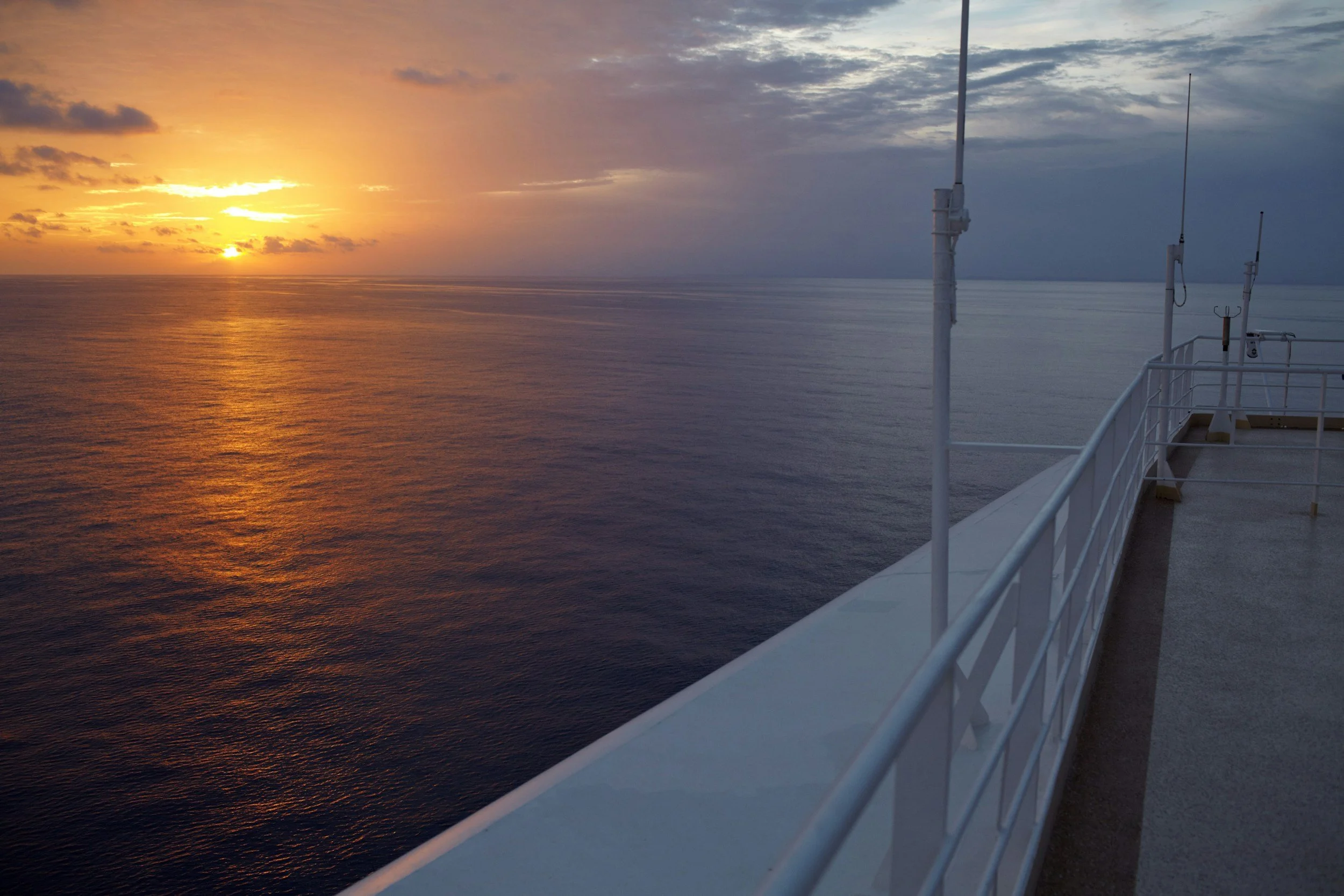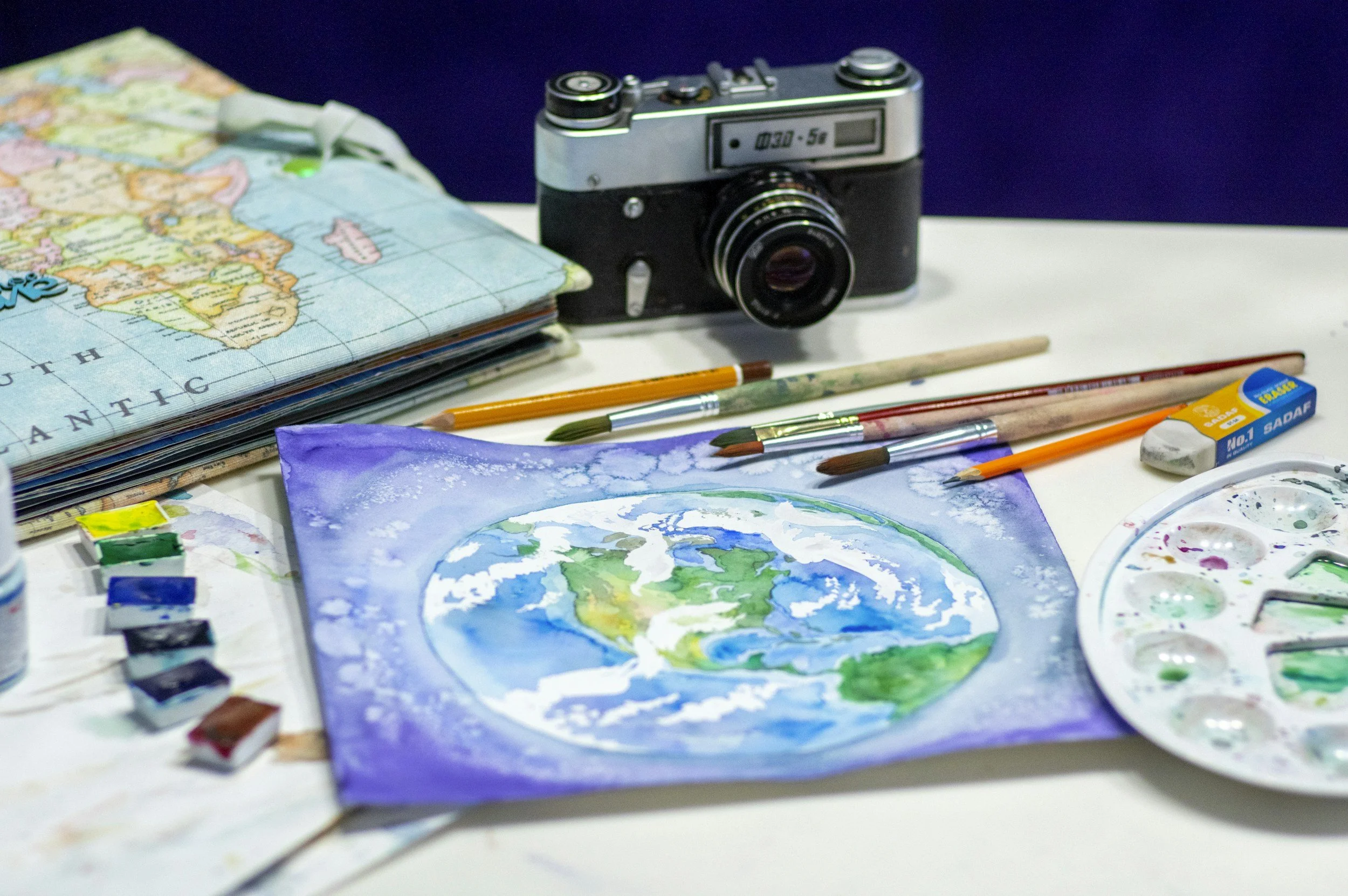Living Life at Sea on Ships Far from Shore
Somewhere between shore and sky, there’s a rhythm that only those who live at sea understand.
It’s not just a job or a voyage. It’s a different way of existing. Time stretches and folds differently here. Days blur into one another. Mornings begin in silence, broken only by the hum of engines or the shifting of tides.
You wake up and wonder which part of the ocean you’re in now, or whether land is anywhere close.
What is life at sea like? I don’t know how to answer without contradicting myself. It’s freeing and confining. Beautiful and exhausting. Peaceful and unsettling.
The sea teaches you how to live inside a paradox – and somehow, it becomes your new normal.
From the deck, the world looks borderless. The horizon stretches in every direction, a perfect circle of sky and sea. Some mornings, the light hits the water just right and it looks like molten gold. Other days, the ocean is steel and wind and endless motion.
But always, it’s vast. It reminds you how small you are. It also reminds you that small can be enough.
Time behaves differently at sea. You lose track of dates. Your body follows the rhythm of shifts and bells, not clocks. You live by a strange kind of math: seven days on, one day off, four ports in five days, six hours behind your hometown. Days blur. Months vanish.
Sometimes you wake up and forget where in the world you are, or whether it’s day or night.
There’s also the strange feeling of being cut off from the world. No signal. No breaking news. No instant updates. Your phone becomes a glorified camera. You learn to wait for wifi like people used to wait for letters.
It’s frustrating, sometimes. But also freeing. There’s something oddly healing about being unreachable. The noise fades, and what’s left is your own voice – your real thoughts, unfiltered by notifications.
But it’s not always serene. Incidents at sea are real. You rehearse them like theatre: fire drills, abandon ship, man overboard. Alarms blare. You practice grabbing your lifejacket in under 10 seconds. You know where your muster station is without thinking.
You hope you never need to use that knowledge. But you carry it, quietly, in the back of your mind.
Still, humans adapt. The strangest things become normal out here. You sleep in a metal box that rocks you to sleep. You eat lunch while the floor tilts under your chair. You memorise the number of steps from your cabin to the mess. You learn how to pour coffee while the ship is rolling. You forget what it’s like to cook your own food or walk barefoot on grass. Your whole sense of normal shifts, like the tide.
You miss things. Big things. Weddings. Funerals. New Year’s dinners. Birthdays. You watch life happen on the other side of a screen – when you’re lucky enough to get a signal.
But in exchange, you live another kind of life. You celebrate Diwali with a Filipino, a Ukrainian, and a South African. You learn to say “thank you” in six languages. You share instant noodles like gold.
Life at sea isn’t glamorous. It’s real. It’s raw. And it changes you. You grow quieter. More observant. You start finding beauty in small things: the way the moon lights up the water, the taste of fresh fruit at port, the way someone plays guitar on the boat deck after shift.
You stop needing so much. You realise how little you actually need to feel alive.
You also learn that home can be a moving target. A cabin. A crew mess. A view from deck 17. You carry it with you, even when you’re in the middle of nowhere. You build little rituals: morning coffee on the forward deck, a phone call during satellite window, a walk around the outer deck at sunset. These become your anchors.
And when you return to land, everything feels too fast. Too loud. Too crowded. You forget how to cross the street without a green man. You crave the sea but also feel strangely adrift without a shift schedule.
It takes a while to come back to land life. Part of you stays out there, somewhere on the water. Listening for the low hum of engines, watching for the first glimpse of coastline, waiting for the sky to open up wide again.
That’s the thing about life at sea. It takes something from you, yes, but it gives something back too. A quieter mind. A wider world. A different rhythm to live by. And once you’ve lived it, part of you never quite returns.
Even on land, sometimes you’ll close your eyes and swear you still feel the sway.














